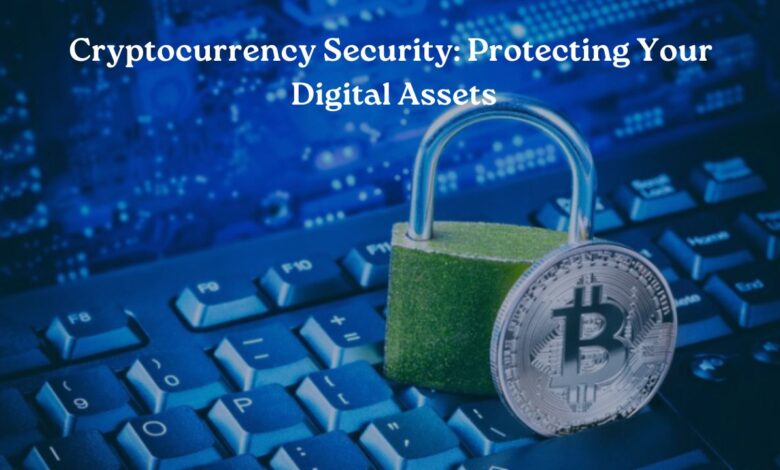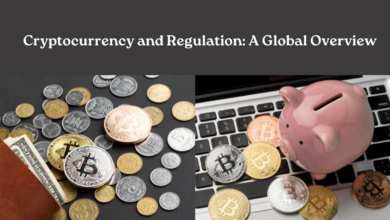Cryptocurrency Security: Protecting Your Digital Assets

In digital finance, cryptocurrencies like Bitcoin and Ethereum offer revolutionary decentralized money. However, robust security measures are essential to protect these assets from threats. Understanding cryptocurrency security is crucial for safeguarding digital assets in this new financial ecosystem.
Understanding the Risks
Cryptocurrencies operate on decentralized blockchain networks, which offer security benefits compared to traditional centralized systems. However, they also introduce unique security risks that users must navigate. Here are some critical risks associated with cryptocurrency holdings:
1. Cyber Attacks:
Malicious actors target cryptocurrency exchanges, wallets, and users through phishing, hacking, and malware attacks.
2. Loss of Private Keys:
Cryptocurrency wallets rely on private keys for security. Losing or having these keys stolen can mean losing access to funds forever.
3. Regulatory Changes:
Shifting regulations in different jurisdictions can impact the legality and security of cryptocurrency transactions.
4. Human Error:
Mistakes in handling wallets, transactions, or security settings can lead to financial losses.
5. Scams and Fraud:
Ponzi schemes, fake ICOs (Initial Coin Offerings), and fraudulent projects are prevalent in cryptocurrency.
Best Practices for Cryptocurrency Security
To protect your digital assets effectively, adopting a comprehensive security strategy is crucial. Here are crucial methods to bolster the security of your digital currency investments:
1. Use Secure Wallets
Choose reputable cryptocurrency wallets based on their security features. Hardware wallets like Ledger and Trezor offer offline storage and robust protection against hacking. Software wallets like MetaMask and Trust Wallet are suitable for smaller amounts but should be used cautiously.
2. Implement Two-Factor Authentication (2FA)
Set-up a two-factor authentication (2FA) across all cryptocurrency exchange and wallet platforms. This enhances security by mandating an additional security verification step (like sending a code to your mobile device) along with your password.
3. Backup Your Private Keys
Securely store backups of your wallet’s private keys in multiple offline locations. Consider storing hardware devices like USB drives or paper wallets in safe places.
4. Stay Updated and Educated
Make sure to update yourself with news and insights about security threats and best practices in cryptocurrency security. Follow reputable cryptocurrency news sources and stay vigilant against emerging scams.
5. Diversify Your Holdings
It is not advisable to place all your cryptocurrencies in one wallet or exchange platform account. Diversifying your holdings across different wallets and platforms can lessen the risk of forfeiting all your funds in case of a security breach.
6. Beware of Phishing Attempts
Only click links or download files about cryptocurrency with thorough checking. Verify website URLs and only interact with trusted sources.
7. Regularly Update Software
Keep your wallet software, operating system, and antivirus programs current. Software upgrades frequently incorporate essential security updates designed to safeguard against potential vulnerabilities.
8. Use Cold Storage for Long-term Holdings
Consider cold storage solutions that keep your private keys offline for long-term investments. Cold wallets operate offline, reducing the vulnerability to cyberattacks due to their lack of internet connectivity.
9. Monitor Your Accounts
Regularly check your cryptocurrency accounts and transaction history for any unauthorized activities. Set up alerts for withdrawals or login attempts to detect potential security breaches early.
10. Understand Security Trade-offs of Different Cryptocurrencies
Different cryptocurrencies offer varying levels of security and privacy. It’s important to grasp the security attributes and associated risks of each cryptocurrency before deciding to invest.
11. Use Strong, Unique Passwords
Generate strong and distinct passwords for each of your cryptocurrency accounts. Refrain from using predictable passwords, and think about employing a trustworthy password manager to securely store and handle your passwords.
12. Enable Whitelisting
Some cryptocurrency wallets and exchanges offer whitelisting features, which allow you to specify trusted wallet addresses for withdrawals. Enable this feature to prevent unauthorized transactions to unknown addresses.
13. Secure Your Physical Environment
Ensure the physical security of devices that have access to your cryptocurrency wallets. Safeguard your computer and mobile devices by employing strong passwords and, whenever feasible, biometric identification to enhance security.
14. Consider Multi-Signature (Multisig) Wallets
Multisig wallets require multiple signatures (from different devices or parties) to authorize transactions. This enhances security by minimizing the vulnerability of a sole point of failure.
15. Be Cautious with Public Wi-Fi
Refrain from using public Wi-Fi networks to access your cryptocurrency wallets or make transactions due to potential security risks, including the threat of hackers intercepting your data.
16. Test Small Transactions
Initiate small test transactions before transferring more significant amounts when using a new wallet or service. This helps ensure everything is set up correctly and minimizes the risk of losing substantial funds due to errors.
17. Utilize Decentralized Exchanges (DEX)
Consider using decentralized exchanges (DEX) instead of centralized exchanges whenever possible. DEX platforms allow you to retain control of your private keys and reduce the risk of exchange hacks.
18. Prepare for Emergencies
Have a plan in place for recovering your funds in case of unexpected events, such as the loss of private keys or the failure of a wallet provider. Understand the recovery procedures offered by your wallet provider or hardware wallet.
19. Keep Personal Information Private
Be cautious about sharing personal information about your cryptocurrency holdings on social media or public forums. Avoid disclosing specific details about your wallet addresses or transaction history.
20. Consider Insurance Options
Certain custodial services and platforms for cryptocurrencies provide insurance protection for digital assets stored within their systems. Explore insurance options to protect against potential losses due to theft or hacking.
Apply these tips to enhance cryptocurrency security and protect your digital assets. Consistently prioritize strong security habits in the evolving cryptocurrency landscape to safeguard your investments effectively.
Conclusion
As cryptocurrencies redefine finance, prioritizing security is vital for all involved. Robust security practices shield digital assets from cyber threats, scams, and errors. Remember, in decentralized crypto, you’re solely accountable for security. Stay informed, cautious, and proactive to protect your holdings confidently. With the proper precautions, navigate digital finance securely and safeguard investments.
Explore www.intogeeks.com for cryptocurrency-related articles.




